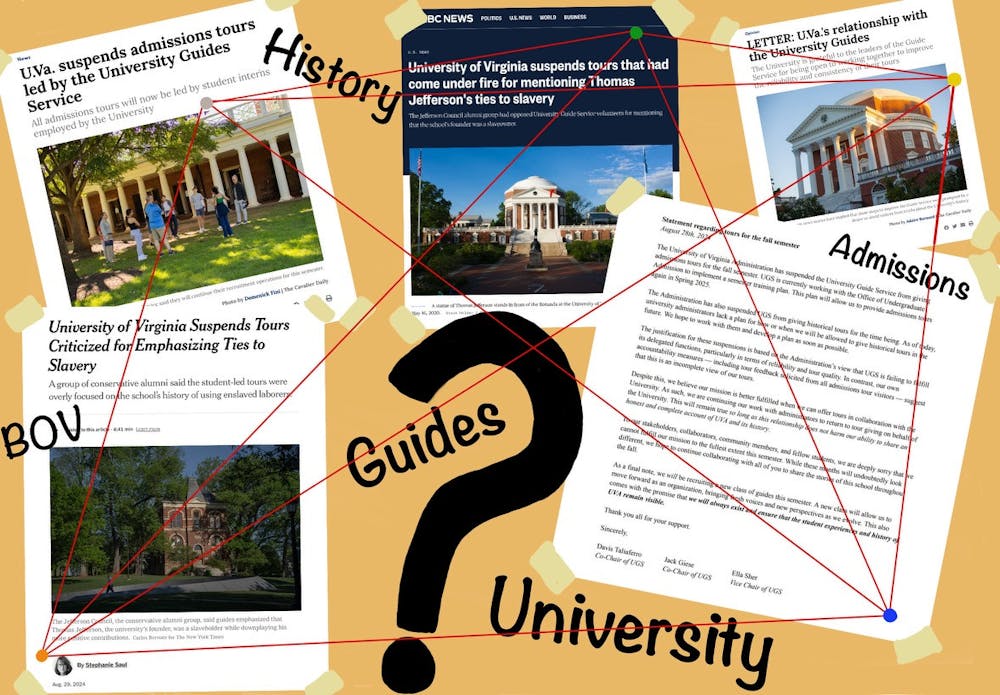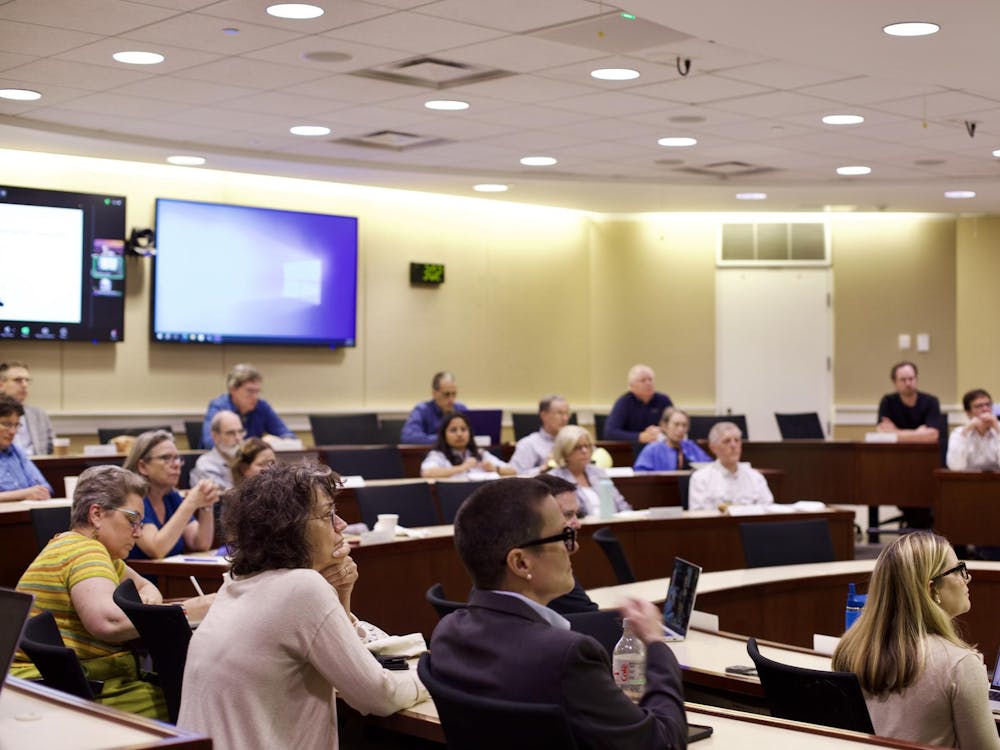Last Wednesday, the University Guide Service released a statement explaining that they had been suspended by the University for the fall semester. The suspension has since been picked up by national outlets, many of whom have framed this suspension as a reaction against the sensitive topics covered in U-Guides tours. These are serious accusations which, if true, are completely at odds with the mission of the University and the critical thinking it seeks to inspire.
The University claims to be a place where community members are encouraged to “challenge convention, [and] break barriers.” The Guides Service has been a longstanding manifestation of this mission. Instead of being directly tied to the University, Guides are a semi-autonomous organization that is able to narrate student experiences and institutional history without oversight from the University. The tradition of student-run tours is unique — few, if any, other universities empower students with the autonomy to narrate the historical and contemporary landscapes of higher education.
Given the essential role that Guides have played in the narration of student experience, it is surprising that the University has written little more than a vague letter to dispel the concerning narratives which have circulated, including accusations of censorship. The University owes our community a thorough and substantiated explanation of their actions. In the continued absence of a thorough explanation, we are left with many questions.
Why now?
It is unclear what exactly precipitated the suspension of the Guide Service for the fall semester. According to the University, the issues which they have alleged — such as failing to fill tour guide slots and missing tours — have been ongoing for multiple years. And yet, they have never been suspended until now. In fact, just last spring, many Guides were under the impression that they would be resuming regular tours in the fall semester. So, what changed between the end of Spring 2024 and now? Why did the admissions office not capitalize on the summer recess to address their concerns? Is it a coincidence that during this time the Board of Visitors became majority Youngkin appointees?
Why has the University really suspended the Guides Service?
Articles suggest that the suspension of the Guide Service is connected to the manner in which Guides retell the history of the University. Guide-led tours do not shy away from discussing how the University was constructed by enslaved laborers, how the University was a leader in the field of eugenics and how the University mishandled the 2017 white supremacist rallies in Charlottesville. If the Guide Service has been suspended because of the truths they share about this institution, this would constitute academic censorship.
The University, in framing its decision, has refuted the censorship narrative. Instead of focusing on the content of tours, they have fallen back on more general bureaucratic critiques, namely that Guides do not have enough members to fill tours and have also failed to show up for tours. Such critiques are directly at odds with the University’s proposed solution — a training period. While the specifics of this training have not been released, it is hard to imagine that you can train a set number of Guides and magically end up with more Guides. So, if not to exercise control over the content of Guides’ tours, what is this training period for?
Perhaps this training will address the critique which administrators have tried to de-emphasize — that the quality of tours has been inconsistent and that the University has received feedback about “excessive and off-putting negativity about the University.” Ignoring the potential censorship implicit in this concern does not make the University's critique any less disquieting.
Most importantly, however, is not the nature of these critiques themselves but the general lack of substantiation. Any professor worth their salt at the University would require a student to cite evidence when making claims such as these. So where is the University’s evidence? All tours run through the University, including Guide-led tours, include feedback forms which are then disseminated by the admissions office to the Guide Service. So, presumably, the University has an evidentiary basis for their concerns, and yet no such evidence has been released.
Why the secrecy?
Without evidence with which to substantiate the University’s claims, it is little wonder that students, community members and even national media outlets perceive the University’s actions to be suspect. We have been left completely in the dark. The fact that it was not the University, but rather the Guide Service, which alerted the community to this suspension suggests that the University, for whatever reason, is approaching this issue with a level of secrecy. But why? How does the University benefit from not being fully transparent with students about this suspension? Does this secrecy undermine the University’s emphasis on student self-governance?
It may be easy to think of the Guide Service suspension as an isolated incident with little precedent and even fewer future implications. But such a mindset is dangerous and historically inaccurate — a very similar set of circumstances led to The Cavalier Daily’s independence in 1979. The guiding star, as it were, of this university is its commitment to academic freedom and the traditions which empower students to take charge of their own educational environment. It is unfair, unproductive and unnecessary to pit this mission against the needs of visiting families, as the University does in its open letter to this community. Of course, tours must prioritize the needs of visiting families but administration must provide more evidence to suggest that they have a better grasp of what those needs are than the dedicated Guides who have spent years crafting compelling tours.
Without more careful and consistent communication from University administrators, this Editorial Board worries that the suspension of the Guide Service endangers the mission of the University and the needs of visiting families. But mostly we wonder what is the University’s endgame, and do recent actions foreshadow a lack of support for student self-governance as an institution?
The Cavalier Daily Editorial Board is composed of the Executive Editor, the Editor-in-Chief, the two Opinion Editors, the two Senior Associates and an Opinion Columnist. The board can be reached at eb@cavalierdaily.com.







